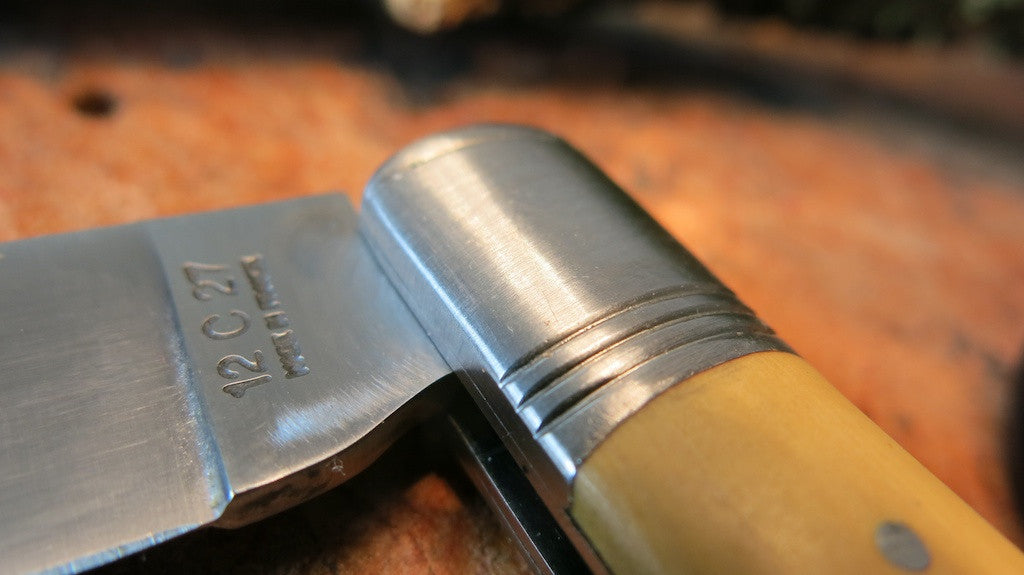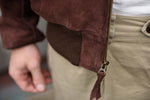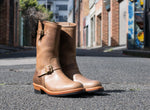09 Dec 2016
Phone? Check. Wallet? Check. Keys? Check. Knife?…..
A good knife is the sign of a life well lived; each handle, each blade telling the story of t...
Phone? Check. Wallet? Check. Keys? Check. Knife?…..
A good knife is the sign of a life well lived; each handle, each blade telling the story of the owner. Since the first edge of stone was sharpened over two million years ago, the blade has become the true companion of civilisation, predated only by the fist. Of course, we’ve come a long way since then and so have our knives, each generation adapting and refining their knowledge of metals and construction techniques. None serve as finer examples of such expertise than the cutting tools produced in regional foundries across France during the early 1800’s.
Thankfully, Passion France agree. The small German-based team of enthusiasts have spent the last decade ensuring these exquisite knives can be enjoyed by new generations. At present they offer an astounding array of traditional pocket knives, each model reconstructed and specific to the region from which they were born, produced to the exact specifications and, where possible, in the same foundries as they would have been over 200 years ago.

Here at Pickings and Parry we have a great admiration for those who aren’t afraid of doing things the long way, the hard way, and ultimately the right way. In this case the ends certainly justify the means. Needless to say we’re thrilled to have PassionFrance pocket-knives adorning our shelves once again.
From the middle ages onwards, pocket knives begin developing in great diversity in Europe, each knife developed in accordance with the activities and available, natural resources of its region. Not only an indispensable tool in daily life, the knife became something of a regional passport, or “passeport”. In the mid-nineteenth century, grape phylloxera lay waste to many of the vineyards across rural France forcing a mass exodus to the cities in search of employment. For many the only possession they retained from home was their knife; a reminder of the history and tradition of their region. Wherever they met an owner of the same knife, they knew they were amongst friends, and, as was the custom, would share bread, cheese and wine. In fact, such tradition led to the addition of a corkscrew to many knives produced after 1880.

The intended uses of each knife vary wildly from region to region. From fishermen, shepherds and farmers to veterinarians, doctors and aristocrats, each knife comes with it’s own peculiar idiosyncrasies and adornments. Perhaps the most recognisable and replicated model is the Laguiole knife from the French-region of Auvergne (there is literally a whole book dedicated to the Laguiole!). Once the knife of farmers and cattle breeders, this knife takes it’s name from a small village located on the volcanic high plateau of the Massif Central. There are numerous myths surrounding the Laguiole knife’s details (one in particular involving Emperor Napoleon) but arguably it’s beauty lays in it’s humility. You can tell a Laguiole knife by the inlaid cross made with small metal nails. It is said that shepherds, when opening the night outside with their flock, would place the knife in the ground, thus providing a focus for their prayer. Another emblem of the Laguiole is the “mouche” which translates as “fly”. This can be found atop the locking mechanism of the knife. Although some would argue it represents a bee, if you ever find yourself in the Aubrac region of France, look into the eyes of one of the Aubrac cows and you’re sure to see a couple of Aubrac flies.

Following the First World War much of the handmade knife production in France moved to Thiers and manufacture in Laguiole almost ceased to exist. Thankfully, in 1987 the knife returned to it’s birthplace in Aubrac where it is still made to this day.
“The Laguiole knife has traditionally been given as a gift, preciously held on to or handed down. From generation to generation, and from friend to friend - in exchange for a coin so as not to break the friendship. In the process a whole series of memories are passed from pocket to pocket, and from imagination to imagination.”
A truly practical object, steeped in tradition, a good knife is soon to become a trusty companion. Come visit us in store to view the full collection and enjoy the knives in person.


